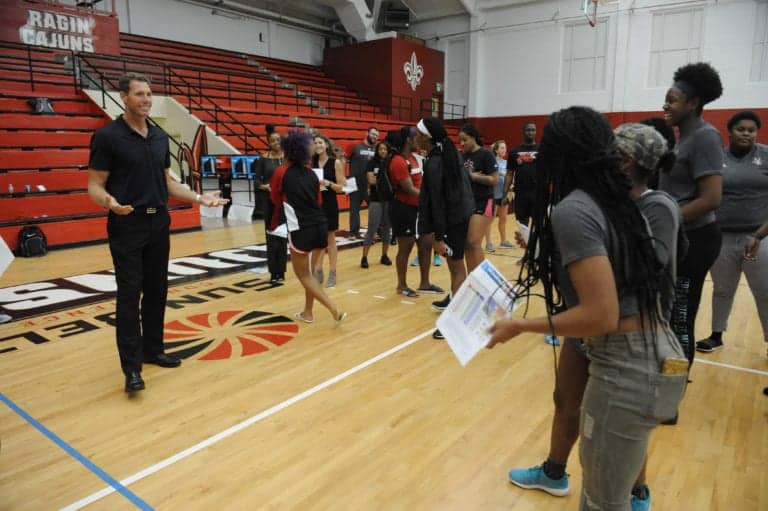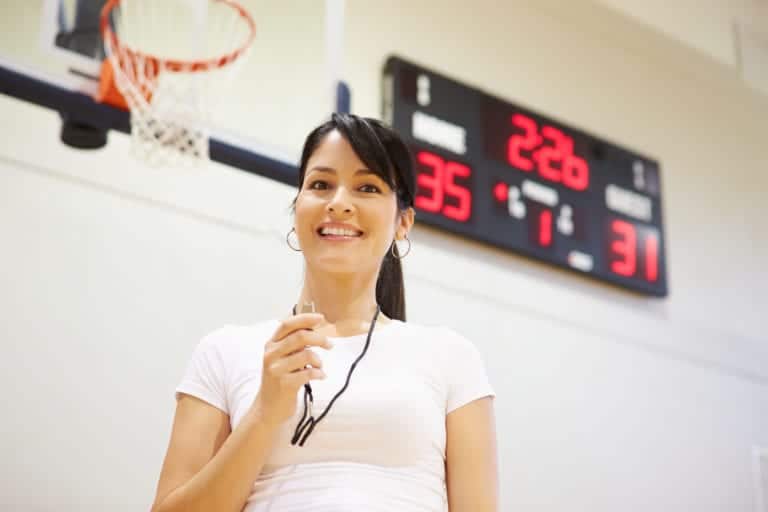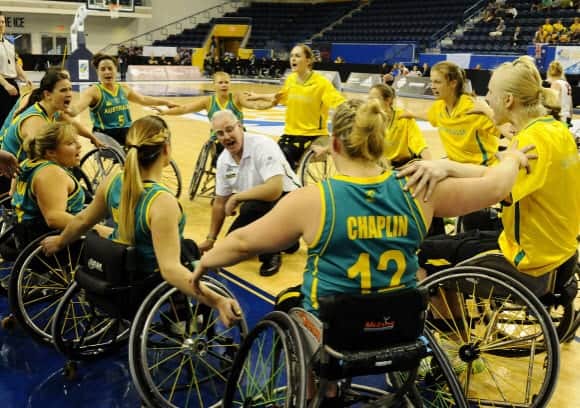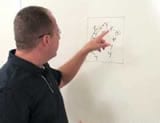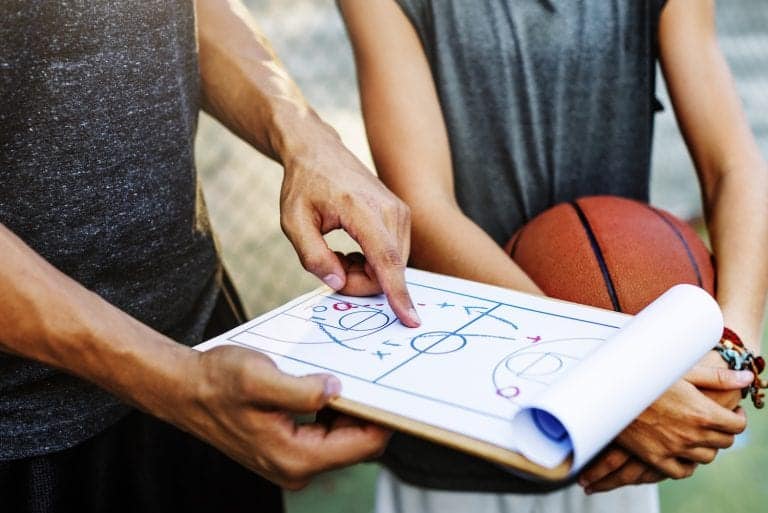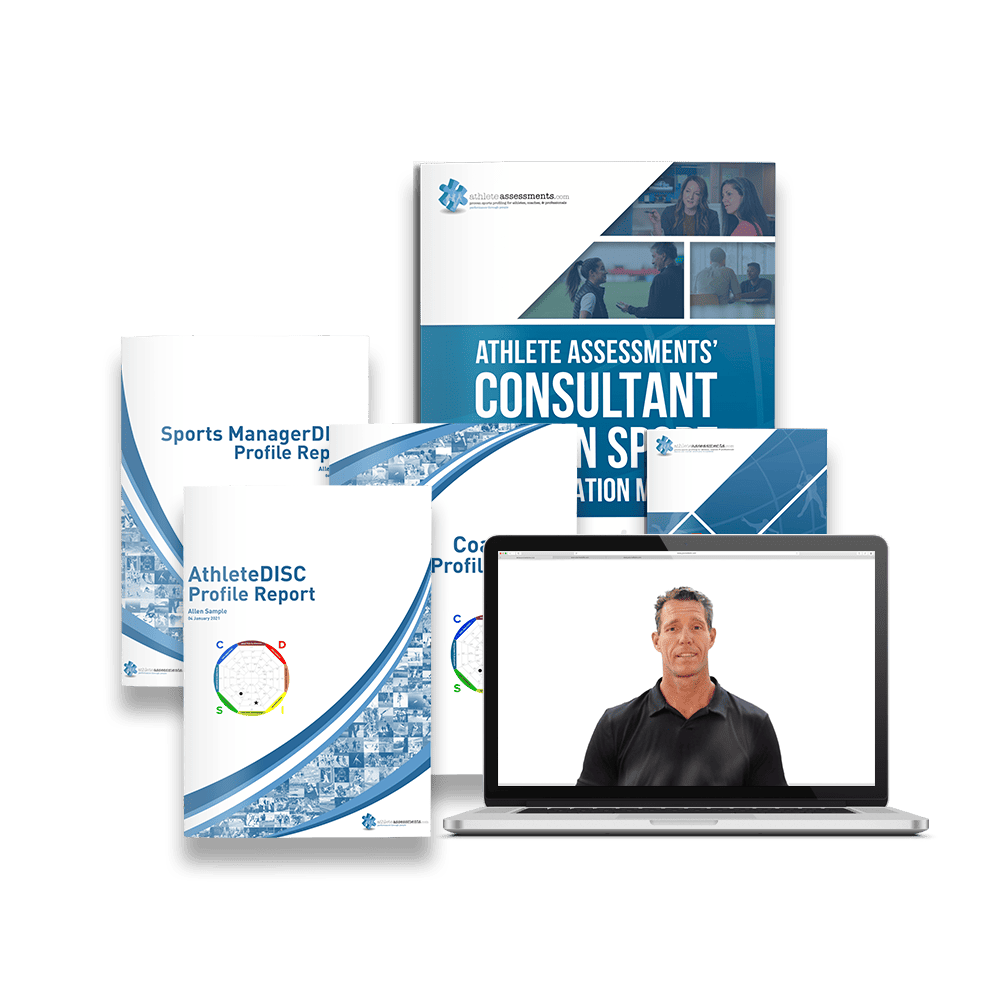The University of the Cumberlands design and deliver professional development workshop for coaches
The University of the Cumberlands is deeply committed to the all-round development of its student-athletes. That commitment compelled a multidisciplinary team from within the University to design and deliver a professional development workshop for 36 of its coaches. The self-awareness and interpersonal skills that were the focus ofthe workshop gave them an even greater capacity to reach and impact their student-athletes on and off the field.
The multidisciplinary team included; Dr. Anita Bowman, Professor and Department Chair of Health; Dr. Eric Stephens, Professor of Psychology; and Dr. William Temple, Assistant Athletic Director and Assistant Professor in the Health, Exercise & Sport Science Department. The trio worked closely with the team at Athlete Assessments to understand DISC theory and application which develops an awareness of behavioral styles – your own and the people around you in a sport specific context.
The trio then incorporated the training with their own extensive experience and professional knowledge and collaborated to develop the workshop for their coaches.
This article uncovers the people, philosophies and planning behind the innovative workshop, we also take an inside look at the presenters’ evaluation of the workshop experience itself.

The University of the Cumberlands sits at the foothills of Appalachian mountain community in Williamsburg, Kentucky and it’s founded on the principals of leadership, service and the knowledge that a quality education changes lives.
To fully understand the importance of this workshop, Dr. Bowman gives us an excellent understanding of the coach’s role in a student-athlete development.
Dr. Bowman says, “at any level, the coach is one of the most powerful relationships in a student-athlete’s life. Coaches needs to understand the immense responsibility and opportunity their position holds. Student-athletes will spend more time with their coach and teammates than any other individual or group in their lives, and the shared experiences shape lives forever. Coaches are role-models, leaders, teachers, and even parents at times. Besides improving athleticism, coaches have the opportunity to develop life-skills such as teamwork, character, ethics, persistence, time management, and responsibility. I hope coaches appreciate their positional power and merge the development of performance with the fostering of a good human because this will impact a student-athlete for life”.
Given that coaches have such an enormous capacity to influence a student-athlete’s life, it makes sense to provide them with the skills and tools they need to better understand and communicate. That ability to connect begins with self-awareness, in any situation people must first understand themselves, their own behavioral preferences and style before they can begin to understand anyone else.
How the Workshop Evolved
The workshop grew from Assistant Athletic Director, Dr. William Temple’s pursuit of better coaching techniques. BJ as he’s widely known, is an eternal student of sport and the behaviors that drive performance. Of his initial interest in DISC, BJ says, “I have always been fascinated on why people do what they do”.
“So, when I came across Athlete Assessments and how they use the DISC Profile, it excited me. I reached out to them and was extremely impressed with the knowledge, approachability and passion they had to help others. That is when I decided to take the CoachDISC Profile and spent a few years applying these ideas to help me understand myself better and communicate more effectively to my athletes”.
“After a few years my role at U.C. changed to a full-time professor and Assistant Athletic Director. One of the areas that I am overseeing in our athletic department is the professional development of our coaches. We want our coaches to evolve and using the CoachDISC Profile was the perfect starting point to help them become stronger leaders.
Bo Hanson, Senior Consultant at Athlete Assessments, has worked closely with BJ over the years. He was instrumental in training the workshop presenters and assisting to design and deliver modules of the workshop. Hanson says, “BJ is a great example of a coach who transitioned into a role where he has even more impact on others by helping them to become more effective in understanding the philosophy behind coaching the person not just the athlete”.
The Consultant Training
The University of Cumberland’s team took an authentic and unique approach to the DISC material and subsequent workshop. Individually, the trio conducting the workshop did one-on-one training with Bo Hanson from the Athlete Assessments team. He says, “we spent time with BJ, Anita and Eric who all became experts in using DISC with their coaches. Each of these three already brought significant knowledge of how to work with people and so their learnings about DISC were absorbed and quickly applied to their unique situation.”
Dr. Stephens, Professor of Psychology, shares his experience of learning to use Athlete Assessments’ DISC tools. He says, “the DISC Profiles fit nicely with some of the content I teach in class, and the work I do with the lacrosse team. All of us have behavioral tendencies. Understanding these tendencies can benefit us in our interpersonal and intrapersonal development. The people who are the most contented on the field or court, or in life, are those who remain true to themselves. They also encourage others to be true to themselves. However, in order to be true to yourself you have to know who you are”.
Dr. Bowman says, “the training and interaction provided by Athlete Assessments has made me a better leader because I’m self-aware of my own behaviors and able to identify others. This has allowed me to approach others in a behavior that is ideal for the situation, as well as adjusting my behavior if approached by someone with a conflicting behavior”.
The Coaches Workshop
The trio presented to a cohort of 36 coaches from both men’s and women’s sports across the University.
When it came to delivering the DISC content within the workshop, Dr. Stephens said, “I received positive feedback from coaches about how the CoachDISC Profile increased self-awareness. Overall, the coaches reacted positively to the process and especially enjoyed the opportunity to interact with one another on tasks requiring knowledge of application of CoachDISC information. In fact, some commented on how increased self-awareness across an entire team could help improve communication, team cohesion, and conflict resolution. I anticipate some of our future work with the coaches will focus on practical strategies to improve in these areas”.
Dr. Bowman says, “the coaching workshop was an opportunity to unify academics and athletics through DISC profiling of behaviors in two mutually beneficial ways. First, this served as a reminder of our mission at Cumberlands, which is to nurture the all-inclusive growth of our student-athletes. Secondly, by becoming self-aware of our own behaviors and our colleagues, we can interact more effectively instead of having the academics versus athletic mentality, but a holistic institutional team”.
She elaborated saying that “during the workshop, the discussions allowed the participants to demonstrate their vulnerabilities through voicing challenges and triumphs, which simply humanized the individuals along with their behaviors causing barriers to be lessened allowing individuals to be viewed as more approachable. Also, by the end of the workshop, many participants identified the shear transferability of the DISC profiling in all aspects of their lives”.
Transferability is a recurrent theme and something that BJ, the third workshop presenter also talks about. Illustrating his dialogue with a specific example, he says, “I use the DISC themes on a daily basis in all aspect of my life. The biggest area it has helped me with is the difficult conversations that occur in my roles at the University and how to approach others in an effective manner”.
The Workshop Experience
Affirming the success of the workshop, Bo Hanson says, “the actual Coach Development sessions this team of three developed included opportunities to both formally and informally learn and develop self-awareness and I know the coaches enjoyed the entirety and how the program built upon itself over the course of the days. To me, the program was a model of how to create a fun way to learn through experience sharing and involvement in various activities supported with these three high quality facilitators drawing out great learning opportunities”.
BJ says, “the enthusiasm of the coaches during the workshop was most impressive. The positive energy and idea of being “one big team” and supporting each other stands out.”
Dr. Bowman says, “the unguarded interaction of the coaches was very productive, (as was) the improved collaboration between academics and athletics for the benefit of the student-athletes and institution as a whole.”
We leave you with this pertinent advice to coaches from Dr. Bowman. She says, “stay current with training trends, but also stay current on techniques to improve interaction with your student-athletes”.
Where to from here?
How well the ‘people side’ of sport is handled directly impacts whether the team wins or loses, whether people are loyal to the program or leave, and overall how much people enjoy their sport. Develop the vital ‘people skills’ in your Coaches that will differentiate them in the competitive employment market that is elite sport. Athlete Assessments can help you specifically in this area. Please contact us to find out how we can assist you in transforming your coach development with focus on the skill development that truly has impact.
Find out more about…
At Athlete Assessments we’re here to provide you with excellence in service and to help you be your best. If there is anything we can do to be of service, don’t hesitate to contact us.
Suggested Articles
When you visit University of Louisiana’s campus and see the new athletic facilities, a testament to the University’s investment in recent years, you’d understandably be impressed with their focus on the physical side of development. But, you would be misled. What you quickly learn, when you dig a little deeper, is that they are committed to a holistic approach to development across the entire Athletic Department.
The first cohort of ten women Coaches, graduates of the NCAA Women Coaches Academies, are set to submerge themselves in Academy 2.0, a specialist extension program for graduates run for the first-time at the upcoming 43rd Women Coaches Academy in Denver, Colorado this December.
A Coach’s role is always evolving. Something Tom Kyle, Coach Development Manager for Basketball Queensland understands and loves about his job.
His role with Basketball Queensland means he’s responsible for developing some 2,000 Coaches at a club, association and school level throughout Queensland, Australia.
By Bo Hanson - 4x Olympian, Coaching Consultant & Director of Athlete AssessmentsThe 2008 Beijing Olympic Study, undertaken by the Canadian Olympic Team, shed light on the factors leading to either personal best performances or Olympic…
Ever spent time wondering how expert coaches operate? In this article we take a quick look at what the 'experts' do that makes them experts. This research was derived from how experts conduct themselves across a wide domain of industries and areas of endeavor. Expertise is universal and we apply this to coaching sport.


